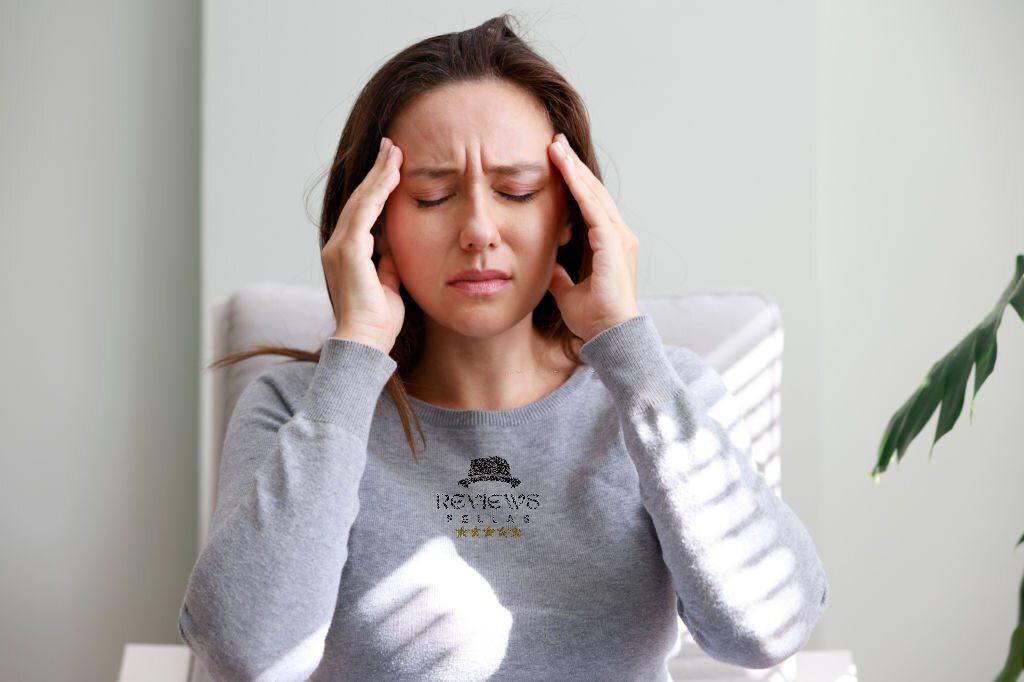You have a throbbing pain in your head. How can you be sure that it is not severe something? There are some of the symptoms of a migraine are related to stroke.
If patients believe that their headache has the slightest chance of having a stroke, don't wait to call 911. Early taking steps can help save the patient's life.
However, migraine or complex migraine is not always a sign of stroke. Here, we will discuss all complex migraine and how it is related to stroke.
All About Migraines
Migraine typically causes painful headache attacks that occur with supplementary neurological symptoms, such as sensitivity to light, flickering lights sensation, sound, smell, or touch. It is a neurological condition that can cause multiple symptoms of debilitating headaches.
There are several type of migraine. These are: Migraines without aura , retinal migraine (opthalmoplegic migraine) , and migraines with aura are three of the most common types.
Some unusual types of migraine with different aura symptoms such as hemiplegic migraine and basilar type migraine, sporadic hemiplegic migraine disorder,
Some additional symptoms are:
- Nausea
- Vomiting
- Difficulty in speaking
- Numbness or tingling,
- Sensitivity to light and sound.
The diagnosis of migraine is defined based on the clinical history and reported symptoms. The most common types of migraine headaches are episodic versus chronic, aura migraine or complex migraine, and without aura migraine.
How Does Migraine Pain Feel?
Pulsating sensation in my head. This is the first feeling of migraine pain by which a person describes the migraine pain.
The feelings are like this;
- Throbbing pain,
- Pulsating headache
- Perforating
- Pounding,
- Debilitating.
It can also sense a severe, dull, steady ache. The pain can be as mild, and gradually it becomes moderate to severe.
Migraine pain commonly affects the forehead area. Normally one side of the forehead or head gets continuous throbbing pain. For some people, it can be on both sides to shift.
Usually pain is on one side of the head, but sometimes it can occur on both sides or shift.
Migraine symptoms

Typical migraine symptoms can start 1 to 2 days before the pulsating headache. This is called the prodrome stage. Symptoms of this stage can be like this:
- Excess food cravings
- Depression or mood swing
- Fatigue
- Low energy
- Periodic yawning
- Hyperactivity
- Irritability
- Neck stiffness
- Sensitivity to light and sound
In migraine with aura, some other symptoms occur after the prodrome stage.
During this aura or in the second phase, you may have difficulties with your vision, sensation, movement, and speech.
The next phase is the attack phase. This is the most acute or extreme of the phases when the actual migraine pain happens.
Attack phase symptoms can last from a few hours to days. But symptoms of migraine can vary from person to person.
Additional Symptoms or prolonged aura symptoms:
These below-mentioned symptoms are often experienced in the attack phase:
- Nausea
- Dizziness
- Feeling faint
- Severe pain on one side of the forehead or in the temples
- Pulsing and throbbing head pain
- Vomiting
After the attack phase, a person will often go back to the postdrome phase. During this phase, again, a person can feel changes in mood and feelings.
What Is A Complex Migraine or Complicated Migraine?
Complex migraine is a migraine that causes non-typical, stroke-like symptoms.
An aura is a preliminary sign that a migraine is coming. Doctors don't usually use the term "complex" migraine; rather, they use the terms:
- Migraine with aura
- Atypical migraine,
- Hemiplegic migraine.
Reason For Developing Complex Migraine
Some reasons are responsible for complex migraine.
- Eating certain foods
- Exercise or physical labor
- Excessive sleep
- Exposure to powerfully bright lights
- Lack of sleep
- Strong smells
- Stress factory in mind and head.
Sometimes a person may not relate to any of these reasons, and yet they experience complex migraine. That migraine is more challenging.
Common Symptoms Of Complex Migraine
Symptoms of complex migraine aura are
- Vision changes
- Blind spots,
- Bright sparkles of light, or double vision
- Disability in thinking clearly
- Difficulty in speaking
- One side of the body suddenly becomes weak or numb.
- Nausea
- Sensitivity to light
- Sound sensitivity
- Throbbing headache pain
- Vomiting
If you have a family history of complex migraines, or your close family members have migraine you may be at higher risk for developing them as well.
What Is a Stroke?

Blood flow is cut off to part of your brain during a stroke. Eventually, the cells there die because they do not get enough oxygen.
A sudden severe headache can be a symptom of a stroke with following symptoms.
- Numbness or motor weakness
- Difficulty speaking.
- Trouble understanding and recognizing people
- Vision problems
- Dizziness
- Decreased hearing
- Decreased consciousness
- Loss of balance or weakness on one side.
This kind of stroke tends to be mistaken as a migraine. It is called a transient ischemic attack, or TIA. There is a term called migrainous infarction or migrainous stroke, means a stroke that starts during a migraine attack.
If you have a migraine and the aura symptoms or headaches seem different than usual, then without further delay, you should get checked out.
Difference Between Complex Migraine And Stroke
Relation Between Strokes And Migraine
Though it is not found, the relation between migraine and stroke. Doctors find that some symptoms are common both in migraine and strokes.
It's possible to have a stroke while one is having a migraine. But don't assume that migraine caused the stroke.
Some specific medications for migraine headaches, like ergot alkaloids and triptans, can narrow the arteries. If any person has experienced a stroke, they should not take these medicines.
Migraine prevention
If you have a migraine, there are some options that help you prevent migraines attack.
- Learn which food or smells, or situations trigger your migraine attacks and avoid those things.
- Drink Liquid as much as you can. Dehydration leads to dizziness and headaches.
- Don't stay hungry.
- Try to have a proper amount of sleep.
- Quit smoking.
- Reduce stress.
- Relax and meditate.
- Exercise regularly.
Conclusion
In the United States, over 35 million people suffer from migraines, the majority of whom are between 35 and 45 years old.
Treatment depends on the variants of migraine types. Patient education is a must to deal with migraines as the symptoms can vary according to the person.
Severe headaches or migraines need proper treatment. A healthcare provider will assist you in diagnosing the types of migraines and provide you with the proper prescription and treatment options.
Without proper treatment, migraines can get worse and can lead to emergency situations.
Frequently Asked Questions (FAQs)
Question 1: What Is Dull Pain?
Answer 1: Dull pain is used to describe chronic or persistent pain. This is a deep ache felt in areas like the head, neck, or stomach, but it generally doesn't stop you from daily activities. A slight headache is an example of dull pain.
Question 2: How Long Do Migraines Last?
Answer 2 - If left untreated, migraines usually last 4 to 72 hours. If a migraine headache doesn't go away within 72 hours after taking the medication, a person should take immediate advice from a doctor for additional treatment and to take other medications.
Question 3: Can Migraines Cause Fever?
Answer 4: No, migraine does not cause a fever. Migraine and fever are two different things. A fever and a headache are caused by different health issues, such as an infection.
Sometimes the symptoms of another illness can trigger a migraine episode.
Question 4: What Is a Complicated Migraine?
Answer 4: A complicated migraine or complex migraine is a migraine that either rises without the typical four phases of a migraine or has a longer-lasting aura.
Question 5: Are complex migraines serious?
Answer 5: The symptoms of a complex migraine are similar to those of a stroke, which makes it quite serious.


